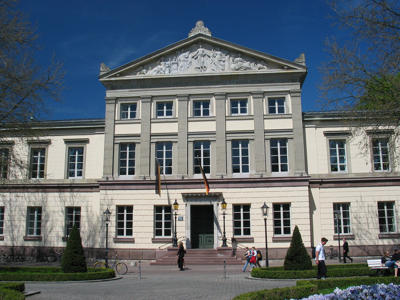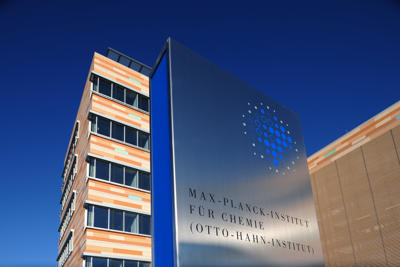Quantum Provides Petascale Storage for Two European Research Institutions
University of Göttingen and Max Planck Institute for Chemistry
This is a Press Release edited by StorageNewsletter.com on October 6, 2016 at 2:53 pmTwo of Europe’s research institutions are using Quantum Corp.‘s StorNext workflow storage as the foundation for managing growing data and enabling a range of scientific initiatives.
GWDG – the computing center for the University of Göttingen and computing and IT competence center for the Max Planck Society – deployed StorNext-powered disk and tape systems in a multi-tier solution to meet its performance and access requirements for 7PB of data. Separately, the Max Planck Institute for Chemistry also turned to Quantum for an end-to-end storage and archive solution that would support greater collaboration and continuous access to an expanding volume of data.
Gottingen GWDG
Providing Shared Access and a Massive Archive for GWDG Data
GWDG supports more than 40,000 users and needed a performing storage system that could handle billions of files and – with data volumes nearly doubling annually – scale to meet rising demand. In addition, the storage platform had to support a multi-tier storage environment, including making 2.5PB of data on disk and 4.5PB on tape accessible from a single file system.
StorNext has met these scale, performance and access requirements. It enables the center’s IT group to support users across a range of OSs and manage a large and growing data archive without hiring extra staff or diverting people from other projects. As one example of the benefits, Quantum has delivered, GWDG provides the center’s HPC cluster with shared access to data from the StorNext environment at speeds far above its requirements. The IT group installed StorNext distributed LAN clients on HPC nodes for access over Ethernet, generating speeds of 3.2Gb/s, compared to the 2Gb/s performance HPC users had requested. As a result, these users can move large amounts of data into the cluster for processing and out again for long-term storage.
Max Planck Institute for Chemistry
Enabling Simultaneous Data Access
and Integrated Protection at Max Planck Institute for Chemistry
The Max Planck Institute for Chemistry explores the chemical processes in the atmosphere and the interaction between air, water, earth and man, producing huge volumes of raw data. One research project involving the study of climate change in the Brazilian rainforest includes measurement devices collecting up to 80GB of data daily. The data is then transported to a data center in Germany, where it is processed and made available to researchers around the world.
Faced with skyrocketing data growth from initiatives such as this, the need to provide simultaneous data access to multiple researchers, and a backup system that couldn’t keep up, the Institute worked with microstaxx GmbH – a system integrator to identify a solution – and selected StorNext.
The data management platform provides the performance needed to support multiple parallel streams of data, the ability to scale as new projects are launched and the simultaneous data access that helps drive greater productivity. By delivering performance, capacity and support for a range of client OSs (including Linux, Unix, Windows and Mac), StorNext has also reduced the need for teams to acquire and maintain their own storage environments.
In addition, the Institute has benefited from the integrated data protection StorNext provides. Leveraging multi-tier data management and a Quantum Scalar i6000 tape library, Max Planck can protect research data in the background. Quantum’s Active Vault feature enables archiving of tapes inside the library instead of on a shelf, thereby minimizing costs and cartridge handling while improving security and access to vaulted content. At the same time, Quantum’s policy-driven Extended Data Life Management helps prevent data loss by periodically checking the data on a tape and copying it to a new tape if a problem is detected.
Dr. Philipp Wieder, deputy head, GWDG, said: “In our experience, StorNext is the only platform that can handle the number of files and amount of data we manage while also delivering high performance. StorNext has met our needs even as our workflows have become more demanding and our environment has evolved.“
Thomas Disper, CISO and head of IT, Max Planck Institute for Chemistry, said: “With the StorNext platform, we have removed barriers to research. It allows us to provide a lot more capacity quickly and easily. We don’t need to give research teams data limits, and storage for new projects can be ready in an afternoon.“















 Subscribe to our free daily newsletter
Subscribe to our free daily newsletter

